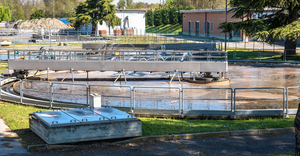October 1, 2000
A local government cannot reduce or evade liability for offsite contamination caused by its landfill simply by condemning the affected property, according to a ruling by a Georgia appeals court. [Shealy, et al. v. Unified Government of Athens-Clarke County, Georgia, No. A00A0773, Ga. Ct. App., July 7, 2000]
The plaintiffs sued the Unified Government of Athens-Clarke County (UGACC), alleging that toxic and hazardous substances had escaped from a UGACC-operated landfill and contaminated their property. They sought damages for creating conditions on the property, such as a nuisance, that amount to a taking without compensation. They also requested an injunction to block UGACC from condemning their property.
When the plaintiffs filed suit, they were unaware that UGACC already had begun formal condemnation proceedings against the property to facilitate environmental cleanup efforts. In fact, even before UGACC was required to answer the complaint, a court-appointed officer held a hearing and awarded compensation to the plaintiffs who, in turn, challenged the legality of the proceedings.
“Losses occurring prior to the date of the taking are not recoverable in a condemnation proceeding and require ‘an independent suit for damages.’”
UGACC eventually filed a motion to dismiss the complaint, asserting that the claims were moot because condemnation proceedings had been filed and the plaintiffs had been awarded compensation.
After a hearing where the parties presented their respective arguments and defenses, the trial court entered an order approving the condemnation. The judge also dismissed the plaintiffs lawsuit, finding the issues the same as in the condemnation action.
On appeal, a three-judge panel reversed the lower court ruling on the grounds that the condemnation award did not affect the plaintiffs' claims because the damages they sought were not recoverable via condemnation proceedings.
Under Georgia law, a property owner may recover condemnation damages that reflect the property's market value when fee-simple title passes from the owners to the governmental authority.
Significantly, “market value” must take into consideration the “general environmental condition of the condemned property,” including the need for remediation, according to Georgia appellate rulings. Moreover, these courts say losses occurring prior to the date of the taking are not recoverable in a condemnation proceeding and require “an independent suit for damages.”
“If the value of the property already had been reduced by the contamination from the landfill, then the value of the property for condemnation purposes would have been the reduced market value, not the market value before the contamination occurred,” said the appeals court. Such a loss of value, the court continued, “is not compensable in the condemnation proceeding.”
Thus, the plaintiffs may proceed against UGACC to recover the reduction in market value of the property caused by contamination from the landfill — a “taking” without just compensation that occurred before the more conventional “taking” via formal condemnation.
Incidentally, the plaintiffs may pursue their claim despite the fact that title to their property passed to UGACC. The right to sue belongs to the party that owns the land at the time of the injury.
The legal editor welcomes comments from readers. Contact Barry Shanoff via e-mail: [email protected]
The columnist is a Washington, D.C., attorney and serves as general counsel of the Solid Waste Association of North America
About the Author(s)
You May Also Like




